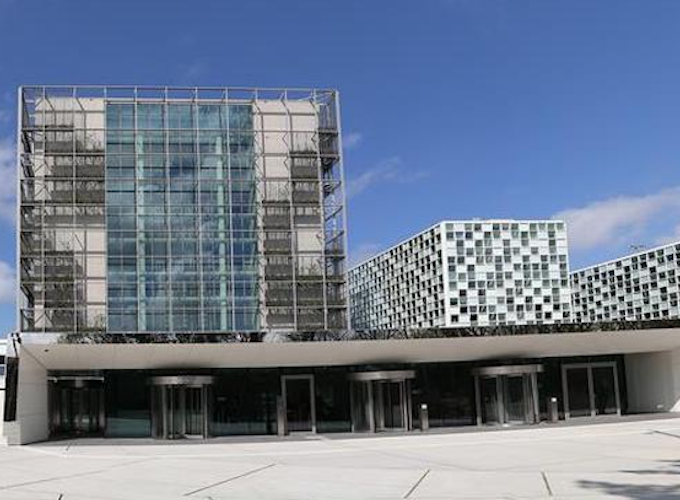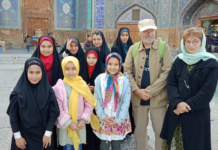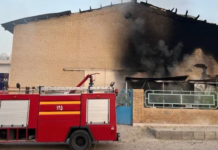
By Benny Mawel in Jayapura
The enforcement of human rights and the resolution of various cases of human rights violations in Papua in 2020 has worsened, say advocates.
Indonesia is being urged to immediately ratify the Rome Statute so that various cases of human rights violations in Papua can be tried at the International Criminal Court (ICC) in The Hague, Netherlands.
The Papuan Human Rights Advocates Association director, Gustav Kawer, said the enforcement of human rights as well as the resolution of cases of human rights violations in Papua in 2020 are getting worse.
“Take note, the face of human rights enforcement is getting worse,” Kawer said.
Kawer explained a number of indicators that “proved” the handling of cases of human rights violations in Papua was getting worse.
He referred to cases of shooting of residents that happened during 2020 in Nduga, Mimika, and Intan Jaya regencies.
The shooting of residents [indigenous West Papuans] in Mimika regency took place on 13 April 2020, with the killing Roni Wandik and Eden Armando Debari.
In Nduga regency on 18 July 2020, Elias Karunggu and his son Seru Karunggu were killed.
In Intan Jaya district, there have been a number of cases of shootings of indigenous West Papuans, including the killing of Pastor Yeremia Zanambani on 19 September 2020, and the shooting that killed the catechist of the Timika Diocese of Rome Catholic Church, Rufinus Tigau, on 7 October 2020.
State ‘not serious’
Kawer said that the state was not serious about resolving the shooting cases against Papuan civilians. This meant impunity for perpetrators of human rights violations in Papua continued.
“Impunity prevents human rights enforcement from being achieved,” said Kawer.
Kawer said that the practice of impunity was indicated in the handling of various cases of shootings of citizens and human rights violations in Papua.
He gave an example of the formation of the Joint Fact-Finding Team for the shooting case of Pastor Yeremia Zanambani, which in the end tended to be a political process rather than a law enforcement and human rights process.
“The team submitted a report to the President. The report [should have been submitted] to the Attorney-General’s Office and the court. [Because the report was submitted to the President], so the legal [process] did not [work],” Kawer said.
Kawer also regretted the steps of the National Human Rights Commission (Komnas HAM) which also submitted a report on the Intan Jaya case to President Joko Widodo.
“We thought there would be a recommendation for gross human rights violations, but [it was] illegible,” said Kawer.
Serious setback
He said that the handling of the shooting in Intan Jaya was a serious setback in the process of handling human rights violations in Papua.
Previously, the results of Komnas HAM investigations in a number of previous cases were submitted to the Attorney-General’s Office, with a recommendation that the cases be tried in court.
Kawer gave an example that the process resulted in the accused killers in the murder of Theys Hiyo Eluay and the Abepura case on 7 December 2000 being put on trial.
“In the previous case, even though there were perpetrators who were free, and we know it was a design of impunity, [it appears] there were efforts [the state carried out the legal process],” said Kawer.
Kawer said that throughout 2020 the practice of law enforcement in Papua had shown increasingly disparities in the law, where there were differences in treatment of perpetrators with civilian backgrounds and those with security backgrounds.
“[If] the perpetrator is the apparatus, it will not be processed. If the community is involved, they will be processed until they are imprisoned,” said Kawer who gave an example of the trial against participants in the demonstrations against Papuan racism.
Nevertheless, Kawer appreciated the TNI’s efforts to be more open and investigate the involvement of its soldiers in the murder and burning of the bodies of two West Papuan civilians in Intan Jaya.
‘Impression of impunity’
“We appreciate this, there is an openness. However, there is an impression of impunity too, [due to] the articles subject to Article 170 of the Criminal Code and Article 180 of the Criminal Code. It carries a light [sentence], 12 years in prison and 9 months in prison. Even though it was a murder case, “said Kawer.
Student activist Bheny Murib from Nduga also criticised the state for “hiding human rights violations” in Papua. As a result, he believed that the state did not want to take care of the right to life of indigenous West Papuans.
“[The armed conflict in Nduga] has [lasted] two years. Our family is still in evacuation,” said Murib.
Murib also considered that the state did not take action against human rights violators in Papua. He gave an example of the shooting case of a truck driver named Hendrik Lokbere in Batas Batu, Nduga regency, on 19 December 2019.
“This year, [the case] is even one year. The perpetrator was never prosecuted [legally], even though thousands of Nduga residents demonstrated demanding [the perpetrator be tried],” said Murib.
Ratification of Rome Statute
Kawer said that the track record of handling cases of human rights violations in Papua showed that the Republic of Indonesia was unable and unwilling to prosecute perpetrators of human rights violations in Papua.
He urged Indonesia to ratify the Rome Statute, so that various cases of human rights violations in Papua could be tried at the ICC in The Hague, Netherlands.
“The solution, the country should ratify the Rome Statute. [By ratifying the Rome Statute], cases in Papua [can] be brought to the ICC,” said Kawer.
Kawer also urged the state to open up and be willing to sit together with the parties who are opposed to the state.
“The state should open space for dialogue with groups that ask for the right to self-determination,” he said.
Benny Mawel is a Tabloid Jubi journalist. This article was translated by a Pacific Media Watch correspondent from the original report.












































